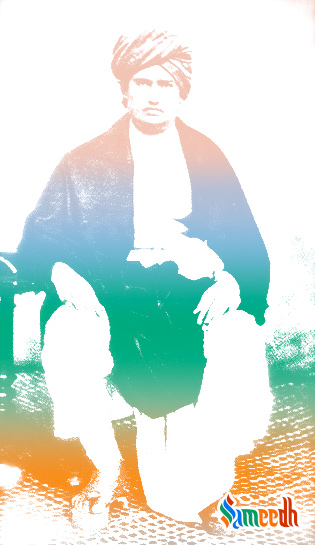This blogpost details the contributions and hard work of Dayanand Saraswati, the founder of Arya Samaj.

EARLY LIFE
A Religious Childhood
He was born in 1824 in a Brahmin family. He belonged to a very religious family and was raised by parents who worshiped Lord Shiva, religiously. Due to his father’s inclination and devotion towards Lord Shiva, he was taught very yearly in life on different ways to worship Lord Shiva. He was taught the importance of observing fasts. However, during his childhood certain events occurred which led him to question the concepts and beliefs he was taught as a child.
He started questioning the concept of religion and God. After the death of his sister, his spiritual journey began as he started questioning the way god should be worshipped and starting searching for the eternal truth.
LIFE EVENTS AND CONTRIBUTION TO SOCIETY
A Spiritual Adulthood
He decided to never marry and ran away from his home in search for answers to his questions on life and dedicated his life to the world of spirituality and social reform. This marked the beginning of his search for the questions that popped in his mind during his childhood. He practices abstinence for many years and lived in forests of the Himalayas to search for spirituality and the answers he needed.
During this time, he became a student of Virajanand Dandeesha and practiced several forms of yoga. It was during this time that he pledged to devote his life to reestablishing the value of the Vedas in the modern Hindu culture.
LIFE AFTER MAJOR EVENTS
A Revolutionary Life
After learning from his teacher Virajanand Dandeesha, he established the revolutionary concept of Arya Samaj. According to this concept, the mission of Dayanand Saraswati was to build a world which will be fit to be called a home for the noble people or Aryas. The efforts of Arya Samaj and Dayanand Saraswati were aimed towards eliminating all kinds of superstition. He supported the concept of equality for women and supported the rights of women to attain education. His work was largely based on getting the world to move back to Vedic Knowledge and correctly blend the teachings of Vedas back into the culture. His work was aimed against the practice of Idolatry, discrimination against women and killing of animals for religious purposes.
Revolutionary freedom fighters like Bhagat Singh were known to have been influence by the ideology and work of Dayanand Saraswati.
LIFE LESSONS
A Legacy of Social Reform
Apart from working towards religious reforms, he also started working towards creating a better and more spiritual world. Aside from founding the Arya Samaj, he also influenced the freedom movement and freedom fighters like Subhash Chandra Bose, Lala Lajpat Rai, Madam Cama and many more with his philosophy and writings.
BOOKS/ LITERATURE PUBLISHED
A Curious Mind
Due to his intellectual and spiritual prowess, Dayanand Saraswati wrote many texts which were aimed at revival of the Vedic knowledge in our society. Texts like Sathyarth Prakash, Sathyarth Bhumika, Rigveda Bhashyam and many more which influenced the society with the wisdom of Vedas.
A beginning of Swaraj
Dayanand Saraswati is called one of the Makers of Modern India because he tried to blend our ancient culture with the modern world. He was the first one to strive for Swaraj. His contributions were exemplary and continue to impact the fabric of modern India.
To understand the leaders and freedom fighters of India, keep reading the blogposts on Sameedh.
